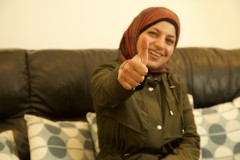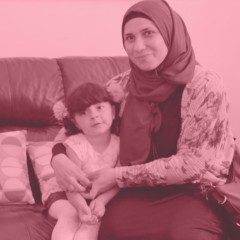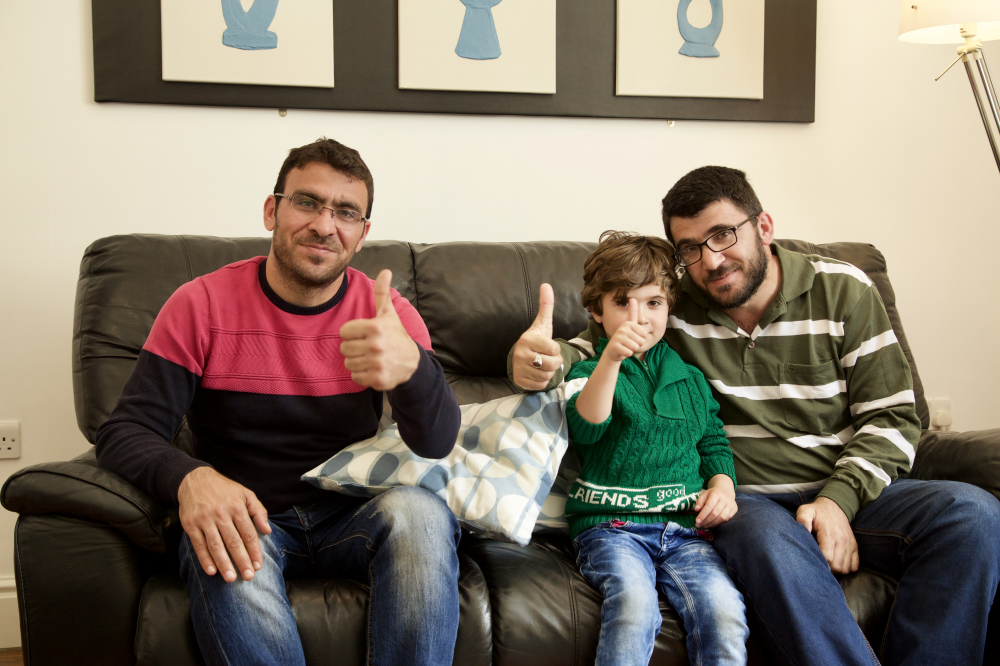 At WaveLength, we work with organisations across the UK who are supporting newly-arrived refugees. As we have seen, loneliness and social isolation are two of the biggest challenges facing refugees in Britain today, and we work with these organisations to help overcome this loneliness. But how can technology help? In this week’s blog, refugees and their sponsors describe in their own words their experiences of loneliness and how technology can alleviate these.
At WaveLength, we work with organisations across the UK who are supporting newly-arrived refugees. As we have seen, loneliness and social isolation are two of the biggest challenges facing refugees in Britain today, and we work with these organisations to help overcome this loneliness. But how can technology help? In this week’s blog, refugees and their sponsors describe in their own words their experiences of loneliness and how technology can alleviate these.
Why do refugees need this support?
The majority of refugees that we assist have arrived through the government’s Syrian Vulnerable Person Resettlement (VPR) Scheme. These refugees have come directly to the UK from refugee camps around Syria in countries such as Jordan and Iraq. This means that they have all been displaced from their homes, and have experienced the trauma of war and upheaval.
“Their homes and possessions were destroyed, and they have arrived in the UK with no money. They have been supported to claim UK benefits, but the money they receive from social security is not sufficient for them to purchase non-essential items, such as a television.”
“They are still adjusting to the huge challenges of a new life in a new country. They are isolated socially and they have no English yet. They also have a young child under 2 years old.”
To be eligible for the VPR scheme, people must meet at least one of the following categories:
- Women and girls at risk
- Survivors of violence or torture
- Individuals with medical needs or disabilities
- Children and adolescents at risk
- Individuals at risk due to their sexuality
This means that the refugees arriving under this scheme have complex needs, and are more at risk of loneliness.
“The families are currently very socially isolated as they do not yet speak English and they are new to Northern Ireland. They do not all live in an area where there are any other Arabic speakers. The parents are not yet able to seek employment due to the language barrier, and the children are experiencing boredom as their parents do not have the money to engage them in activities during the evenings. The parents are currently settles in an urban area and the closest play park for the children is up to a 20 minute walk and the mothers do not always feel comfortable walking alone when their husband is attending English classes in the evenings.”
How can technology help?
For people with such complex needs, a radio, television or tablet computer can represent many different things. It can be a way to keep track of what is happening at home, improve language skills, complete homework, make friends, better understand British culture and create a sense of normality in unfamiliar circumstances.
“A television would keep the children occupies after school and would give them more access to the English language. It would add to the family home environment.”
“Each client benefits from using the TVs and radios as they are able to use them in their rooms and collectively. Enabling them to have some form of entertainment and tune in to programmes where their own language is spoken.”
“Since arriving in the UK nearly two months ago, the family has frequently referred to social isolation. A TV would provide a source of entertainment as well as being a useful English language-learning tool. Two of the children have a critical medical condition and the presence of a household TV would provide a welcome relief and be a good morale booster.”
“Having their own TV will relieve the loneliness and isolation they have suffered over the last few years and give them some sense of normality, particularly for their young eight year old son.”
What do refugees say about the technology?
We ask our beneficiaries to let us know how they are getting on with their new technology. This is what some of the refugees we have helped had to say:
“Thank you so much for relieving a terrible situation and allowing me to be able to forget my troubles.”
“We came from Jordan to Scotland due to the war in Syria, and having a television in our home to watch with the children helped the family settle into our new home. We have been able to watch the various channels, listen to music it also let us watch the news about what was happening in Syria. This helped us still feel close to our families, when my children go to school everyday it has helped decrease my isolation and improve on my much needed English and now I can go out and this has helped my mental health. “
“We watch the Arabic channels which allows us to keep up with the news in Syria. It has let my children watch their familiar programmes which eased the resettlement process, our children were missing home and having a television gave them comfort at night time when they went to bed.”


